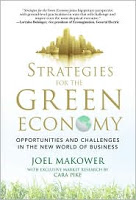 Engineers will tell you that marketing is not necessary. They will say that it doesn’t matter what you call it – functional products that fill a need will sell themselves. In fact Microsoft takes that concept to a whole new level by professing smart technology – via virtue of its functionality – will sell itself (and in Microsoft’s case, despite the marketing!)
Engineers will tell you that marketing is not necessary. They will say that it doesn’t matter what you call it – functional products that fill a need will sell themselves. In fact Microsoft takes that concept to a whole new level by professing smart technology – via virtue of its functionality – will sell itself (and in Microsoft’s case, despite the marketing!)
In the western world of chaotic consumerism, we know for fact that this notion of ‘build it and they will come’ does not work without a hefty marketing budget. There is simply no way we would have had a clue what a Google or a Tivo or a Yahoo was without their marketing dollars.
But what about in an emerging market where farmers just need new drip irrigation systems or pumps? Or perhaps access to life support medication? Though these products may be new (just like Google was to us), it is arguable that what could be used for marketing dollars should perhaps be used to provide access, education or financial consultation for these mission critical life enhancing products. One could argue that building a brand here seems unnecessary or worse, imprudent.
But brand building does not always require the whole toolbox. Smart companies look at their resources in order to leverage whatever they have to become a trustworthy calling card. When done right, a brand can actually influence access, distribution, funding and much more . A brand becomes a catchall for a promise and an expectation. And building a brand is as much about creating a voice and establishing leadership as it is about creating the mark and materials that represent the brand in two-dimensional form.
Brand as Beacon
Debbie Millman writes in her counter to Lucas Conley’s Obsessive Branding Disorder that brands embody allegiances, affiliations and identities. When applied to communities, clinics, hospitals, townships and small businesses in developing countries trying to attract regulatory support, distribution channels, funding access or customers, a trusted “brand” becomes the positive equivalent of the squeaky wheel. Newcomers (government, funders, NGO’s) expeditiously seek out well-defined, efficiently run community businesses and organizations. A well-known brand name (let’s just consider for a moment that a pretty icon isn’t necessary here) stands for something that is consistent. Brands give businesses and organizations a leg-up. The shorthand for the “essence” or reputation that a brand creates becomes equivalent to the reputation of the village chief – only in business terms.
Brand as Amplifier
1298 is a subsidized ambulance service started in India and funded by The Acumen Fund. It received a boost of attention during the terrorist attacks in Mumbai last year when its bright yellow vehicles emblazoned with the number 1298 – the number to dial if you need their service – were highly visible in all media broadcast throughout the world during the multi-day siege. Per the founders of the company, they had very little money to promote their endeavor so they used what they had – the panels of the vehicles themselves. By using a bright differentiating color (the founders wanted to make sure it stood out from other well-known vehicles that actually transport bodies), they not only were able to promote on the streets of the cities in which they worked but they were able to capitalize on the unexpected attention they received during the attacks.
Brand as Connector
Oftentimes individual businesses or health care facilities or businesses that would collectively benefit by working together can and should rally under a single umbrella “brand” name. These organizations can attract more attention by collaborating under a single philosophy and create an influential body that will have more power than it would as individual entities. Once again, the power of a brand name can elevate purpose and awareness with a bit of attention to the focus and crafting of a single-minded message. Alliances become more powerful when their new partners or prospects know what to expect. And by virtue of numbers, a single message told by many resonates and gets distributed more widely than many messages told by a few. Brands help play the numbers game that ultimately drives awareness.
Last year the United Nations Foundation announced the Malaria Partnership project which will bring the United Methodist Church, Lutheran World Relief and the Global Fund together with the goal of raising U.S. $200 million to fight malaria. This campaign will have far reaching effects. Besides the twenty million constituents that the two churches in combination will reach globally to educate in the hopes of raising funds, this project will bring together clinics, hospitals and other programs in the African countries this project will benefit.
Methodists and Lutherans operating clinics and organizations who had previously operated independently will now have a single entity under which they may work together – attracting more attention, aligning with other Global Fund grant recipients and effectively creating greater collaboration along the chain of implementers at the ground level where the war against malaria is taking place. The brand value establishes an incredibly important umbrella where the message of the sum of the efforts outweighs the individuals. The “brand” essence created under this single-minded purpose exponentially expedites the impact of this effort.
Brand as an Efficient Bridge of Trust
As noted above The Global Fund to Fight AIDS, Tuberculosis and Malaria is a high profile NGO, set up to meet the Millenium Development Goals. They have committed U.S. $14.9 billion dollars to date to fund grant recipients in 140 countries. Their primary function is to finance the fight against these diseases yet they act a trusted partner to a multitude of stakeholders in the medical, science, government, and non-governmental communities. They are only 6 years old but they have achieved global recognition because of the standards and accountability connected with their business practices. Because of their powerful brand name they – and those associated with them – receive an automatic seat at the table for life-saving business discussions.
Big and Small
These are just a few examples of how brand can and does influence the effectiveness of business. Social entrepreneurships, non-profits and NGO’s operating in developing countries would do well to craft a brand voice from the get-go and look for ways to optimize the single-minded purpose of their presence and business model. In this vein, its easy to see why the practice of branding makes sense.
We, in the Western world, live in a heightened state of what has been argued as over-branding. Yet we select our resources based on the knowledge mostly projected or acquired from branded products and experiences (insurance, soup, fertilizer, you name it). Its easy to see how the importance of brand can translate to the effecitveness of new ventures in emerging markets.
image credit: ‘SomewhereinAK’ on Flickr Creative Commons
[social_buttons]









Comments are closed.